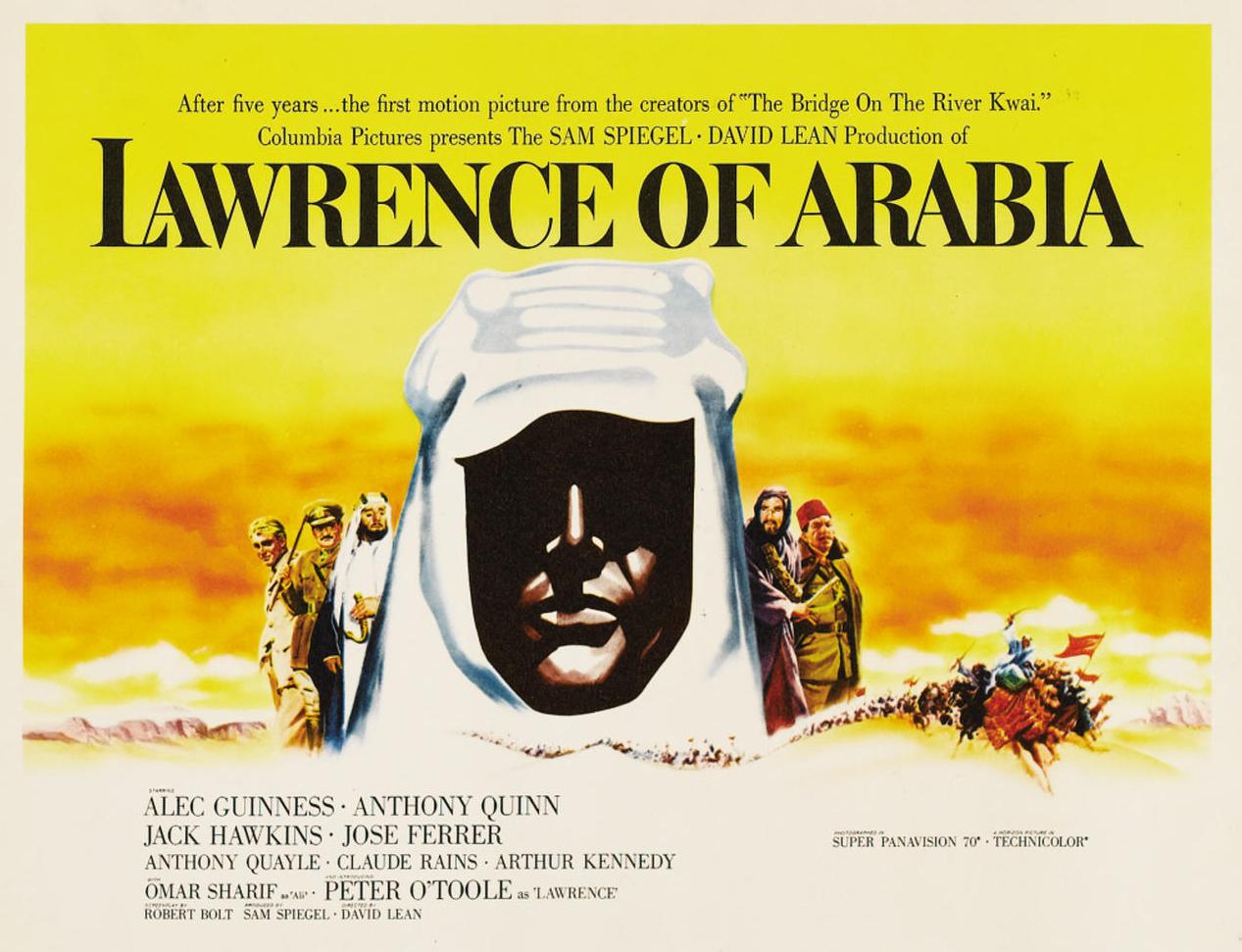There are some movies that you just take for granted that they're supposed to be great, but that most people have probably never seen, let alone seen in a theater.
Lawrence of Arabia is one of those films. I consider myself very fortunate to have had the opportunity to actually catch it on the big screen for the very first time over 10 years ago at the Egyptian Theater in Hollywood as part of the American Cinematheque's 70mm Festival.
What was really amazing to me is just how utterly, overwhelmingly beautiful this film is as a purely visual, cinematic experience. The size of the canvas, the sheer scale of the storytelling, yet the exquisite, meticulous attention to detail in every frame is just breathtaking.
So breathtaking that, honestly, I really had no idea what was actually happening in the movie. I had no idea and, frankly, I didn't even care because I was enjoying the experience of the cinematic journey so much.
But, at the end of the day, I'm a storyteller, and it always nagged at me that I didn't actually get the story of such a great film. So when the opportunity came up again to watch it on cable (albeit with my beautiful but not quite as grandiose HDTV), I lept at the chance.
Now, if you only watch the first half of the movie up through the intermission, it's this incredibly uplifting tale about how one man was able to challenge convention to achieve amazing results and possibly remake a world for the better.
Very typical, Oscar-worthy fare. Very inspirational.
But if you stick around long enough to watch the end of the film, I gradually began to realize that it's actually a much more sophisticated story about the hubris and self-delusion inherent in the colonial system, and how even the most well-intentioned colonialist is still a supremacist. To see T.E. Lawrence brought so high as to be nearly deified, only to be literally thrown face-first into the bloody, mud-filled pit he'd dug at the bottom of his own soul is really surprisingly deep and moving today for a story so large. The journey is very deep and personal, while at the same time magnificantly broad and grand.
A great, complex movie. Oh, for the days.
David Lean clearly knew what he was doing and saying about his own home country, and I applaud him, Peter O'Toole, and their whole team. We should all be so bold in our storytelling.

